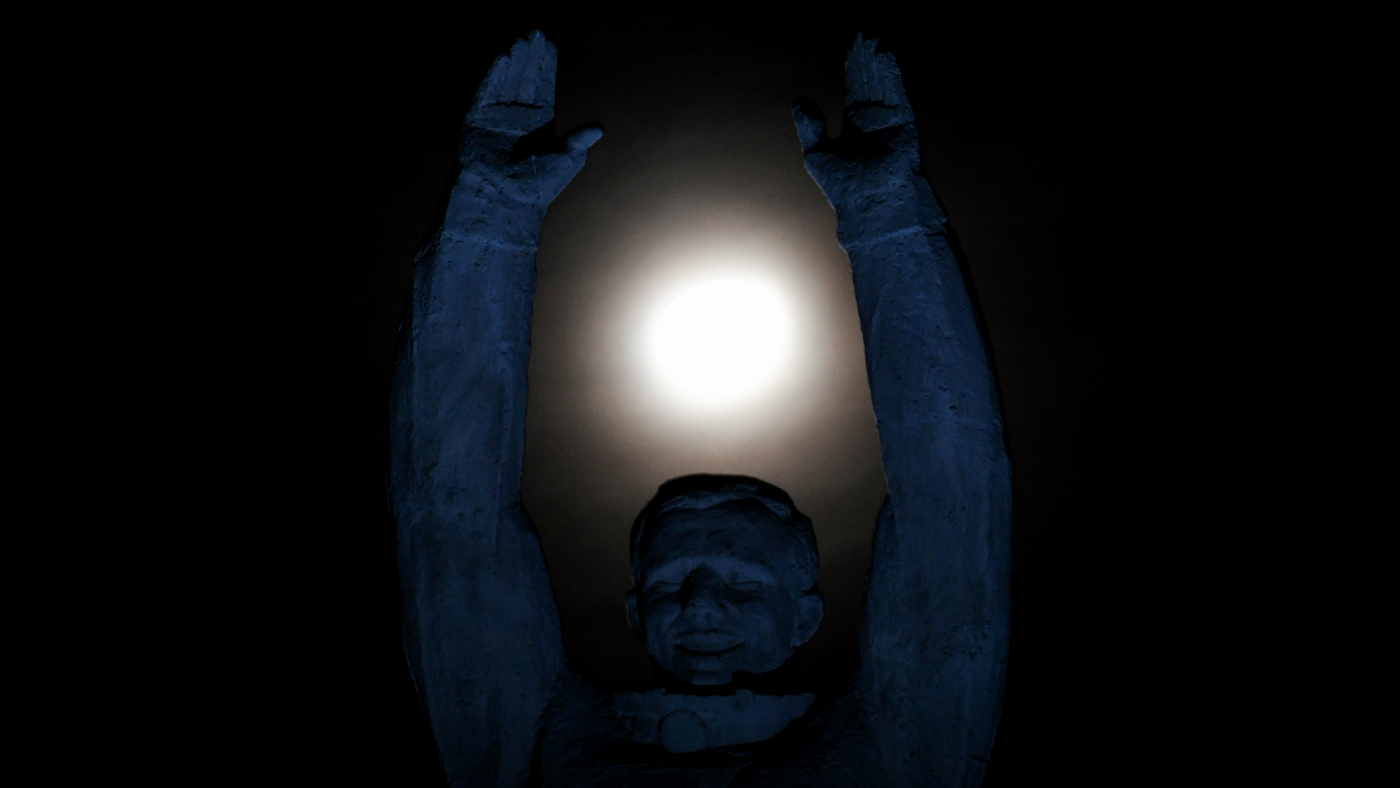Russia launches recruitment drive for Moon mission
Space agency is looking for six to eight astronauts for 2031 voyage

A free daily email with the biggest news stories of the day – and the best features from TheWeek.com
You are now subscribed
Your newsletter sign-up was successful
Russia has announced a new recruitment drive for astronauts in the hope they will be the first Russians to land on the Moon.
The country's space agency Roscosmos is looking for six to eight astronauts who will operate a new-generation spaceship now in development. They "will become the first Russians to fly to the Moon," reports The Guardian.
Russia is keen to rekindle the space triumphs of the Soviet era after a series of embarrassing glitches in recent years, says France24.
The Week
Escape your echo chamber. Get the facts behind the news, plus analysis from multiple perspectives.

Sign up for The Week's Free Newsletters
From our morning news briefing to a weekly Good News Newsletter, get the best of The Week delivered directly to your inbox.
From our morning news briefing to a weekly Good News Newsletter, get the best of The Week delivered directly to your inbox.
It has set 2031 as the target date for its first manned Moon landing.
There are several stages of selection. The successful candidates will have to demonstrate good English and computer knowledge, and have the ability to learn all about spacecrafts and how they operate.
"A high standard of fitness is a must and would-be astronauts have to cross-country ski for 5km," says The Guardian.
Candidates will also have to fit very specific physical standards, says the Calvert Journal. "They have to be 150 to 190 cm tall, weigh between 50 and 90 kilos, and wear shoe size UK 11 or smaller."
A free daily email with the biggest news stories of the day – and the best features from TheWeek.com
After the December deadline, Roscosmos will begin the selection process. Once the six to eight astronauts are selected, the group will attend the Yuri A. Gagarin State Scientific Research-and-Testing Cosmonaut Training Center in the outskirts of Moscow to prepare.
This is the 17th recruitment call for Russian astronauts. The last one took place in 2012, says Newsweek.
Of the 30 members of Russia's current astronaut team, 14 have never gone into outer space.
-
 Switzerland could vote to cap its population
Switzerland could vote to cap its populationUnder the Radar Swiss People’s Party proposes referendum on radical anti-immigration measure to limit residents to 10 million
-
 Political cartoons for February 15
Political cartoons for February 15Cartoons Sunday's political cartoons include political ventriloquism, Europe in the middle, and more
-
 The broken water companies failing England and Wales
The broken water companies failing England and WalesExplainer With rising bills, deteriorating river health and a lack of investment, regulators face an uphill battle to stabilise the industry
-
 Epstein files topple law CEO, roil UK government
Epstein files topple law CEO, roil UK governmentSpeed Read Peter Mandelson, Britain’s former ambassador to the US, is caught up in the scandal
-
 Iran and US prepare to meet after skirmishes
Iran and US prepare to meet after skirmishesSpeed Read The incident comes amid heightened tensions in the Middle East
-
 Israel retrieves final hostage’s body from Gaza
Israel retrieves final hostage’s body from GazaSpeed Read The 24-year-old police officer was killed during the initial Hamas attack
-
 China’s Xi targets top general in growing purge
China’s Xi targets top general in growing purgeSpeed Read Zhang Youxia is being investigated over ‘grave violations’ of the law
-
 Panama and Canada are negotiating over a crucial copper mine
Panama and Canada are negotiating over a crucial copper mineIn the Spotlight Panama is set to make a final decision on the mine this summer
-
 Why Greenland’s natural resources are nearly impossible to mine
Why Greenland’s natural resources are nearly impossible to mineThe Explainer The country’s natural landscape makes the task extremely difficult
-
 Iran cuts internet as protests escalate
Iran cuts internet as protests escalateSpeed Reada Government buildings across the country have been set on fire
-
 US nabs ‘shadow’ tanker claimed by Russia
US nabs ‘shadow’ tanker claimed by RussiaSpeed Read The ship was one of two vessels seized by the US military